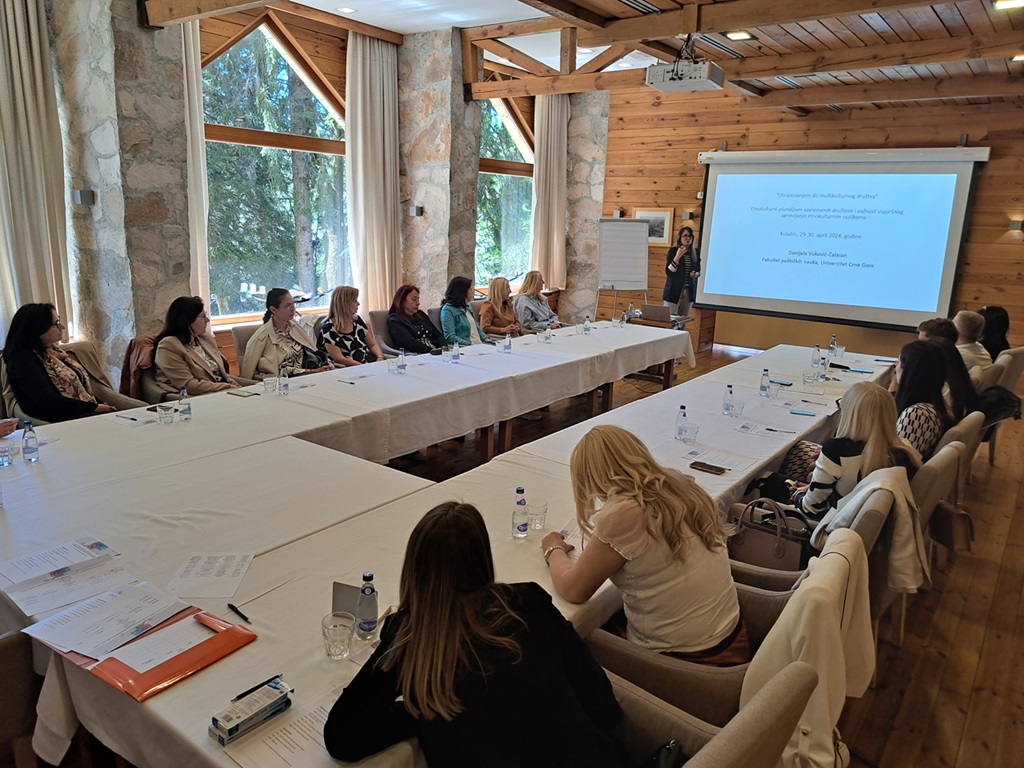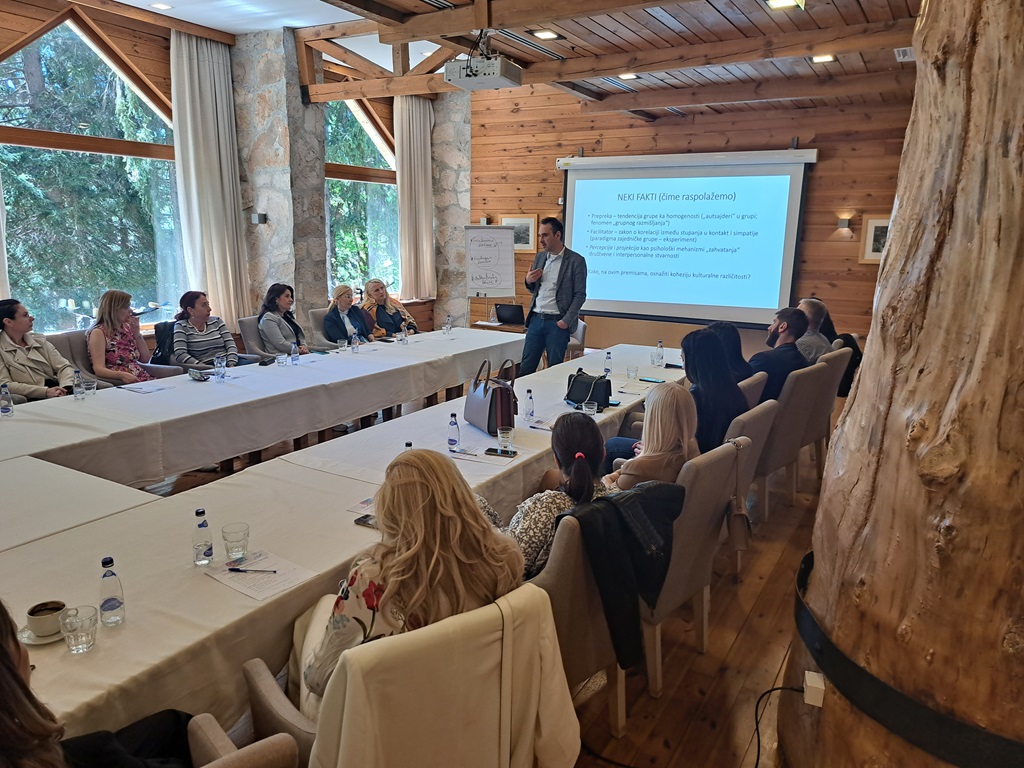Centre for Civic Education (CCE) organized a training session on 29 and 30 April in Kolašin, for 21 secondary and elementary school teachers of social science group of subjects of various schools across Montenegro on the use of modern teaching methods in multiculturalism education.
The training was led by Danijela Vuković-Ćalasan, PhD and Mehmed Đečević, PhD, from the University of Montenegro.
“At the training for teachers, the relevance of the topic was pointed out in light of the tendency to pluralize Montenegrin society in the ethno-cultural sense, as well as from the perspective of preserving and strengthening social cohesion. The focus was also on the role of the education system in the process of socialization of children and youth towards developing intercultural competences, with the purpose of raising the capacity for solidarity, increasing trust in the horizontal dimension and the ability to understand the position of different ethno-cultural communities and the most important challenges they face,” stated Danijela Vuković – Ćalasan, PhD, who led part of the seminar.
This form of strengthening the capacities of teaching staff in primary and secondary schools is essential in creating an encouraging environment for understanding and respecting the cultures of minority peoples and other minority communities, as well as for developing these competencies among young people.
“Montenegrin society is ethnically diverse, and members of different cultural backgrounds come into contact daily. Therefore, it is necessary to prepare children for life in a multicultural environment from an early age. The role of the school is particularly significant in this regard, as the child’s social stage expands in school, and teachers become important figures. This requires raising awareness among teachers about the importance of empowering and respecting cultural differences of children. Thus, in the Montenegrin context, seminars like this are useful and, given the increasing ethnic distance in society, they are also much needed,” believes Mehmed Đečević, PhD, one of the lecturers.
“The topic is becoming more relevant every day, and I believe that there should be more such training sessions and seminars as possible. This training has shown and proved that issues of multiculturalism and interculturality are crucial for the development of our civic and European society. The very communication of us educators and the non-governmental sector may be crucial in this regard, and in that sense all the praise and support to the CCE,” said training participant Zejnel Klimenta, a teacher of CSBH and literature at the Secondary Vocational School in Rožaje.
The training is part of the project “Through education to a multicultural society” implemented by the CCE with the financial support from the Fund for the Protection and Realization of Minority Rights.
Damir Suljević, Programme Associate


